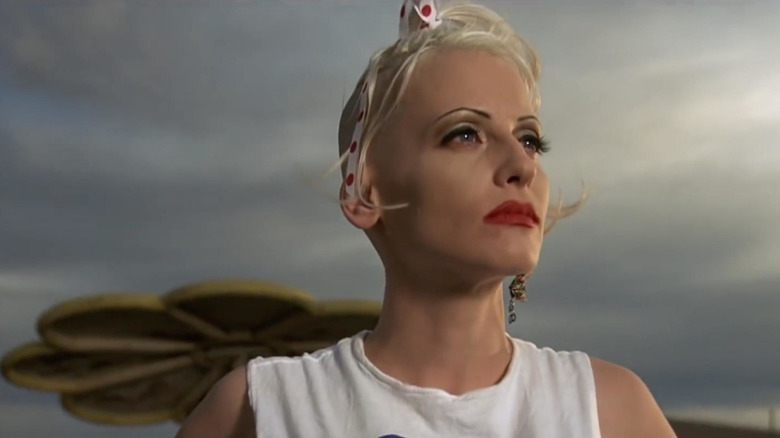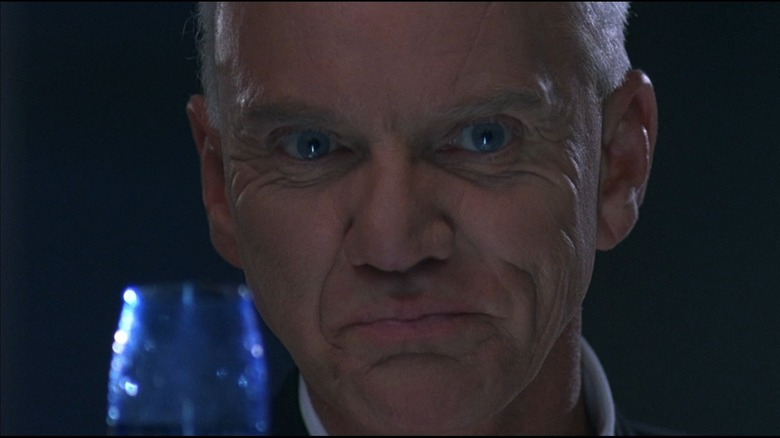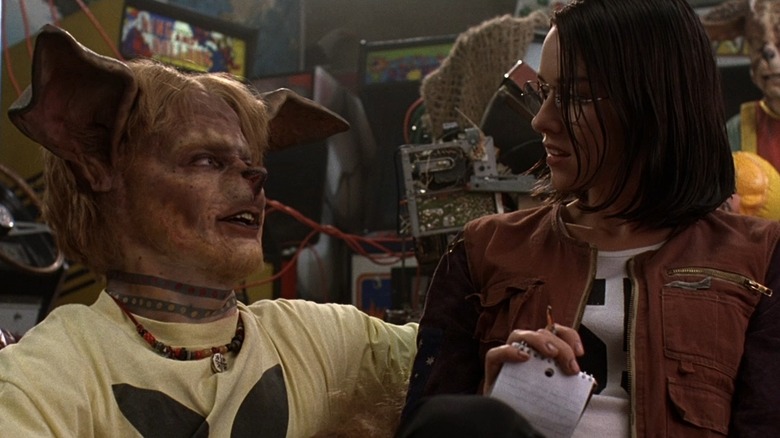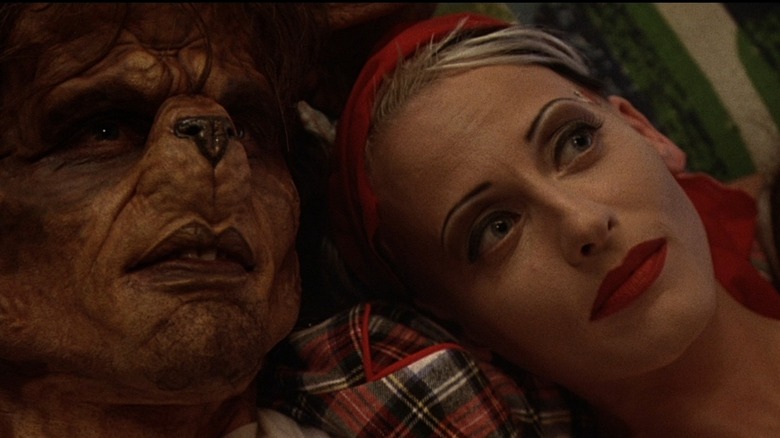Tank Girl Is The Anarchic Sci-Fi Movie We Need In Our Modern Dystopia
The 1990s were a wild time, when fears of Y2K loomed and the upcoming turn of the millennium made it seem like the distant future was just within reach. As a result, there is a giant mess of science fiction films from this era, with each trying its best to predict the future. Many of them tried to prophesize what was coming in the next 30-40 years, which means that the futures they were trying to predict would be right... about... now. So how do they stack up? What did the movies of the '90s get right about our current reality, and what did they totally miss? Each week, I'll be breaking down a different '90s sci-fi flick and compare its version of the future to our actual timeline. This week, I'm kicking things off with Rachel Talalay's 1995 comic book adaptation, "Tank Girl."
"Tank Girl" was loosely based on the comic series of the same name by Jamie Hewlett and Alan Martin, and it followed the misadventures of Tank Girl, who wandered the post-apocalyptic Australian desert, hooked up with kangaroo men, and drove a seriously cool tank. The movie was an odd mix of the original comic, Talalay's vision, and whatever producers thought was trendy in the early 1990s, and has unfortunately ended up as something of a cult oddity. Looking back at "Tank Girl," it predicted some of our current environmental and economic horrors, and has the perfect punk rock, anarchic energy that we desperately need in order to survive our dystopian present.
'They control most of the water, and have all the power'
"Tank Girl" diverges quite a bit from the comics that inspired it, but its heroine's indomitable spirit and anti-establishment attitude translated over well. Lori Petty played the titular troublemaker and embodied her ferocious brand of beer-chugging, sex-positive feminism with panache. Tank and her friends are fighting against the evil corporation Water & Power, led by Kesslee (Malcolm McDowell being as arch as he possibly can). As Tank explains in the movie's opening scene, Water & Power "control most of the water, and got all the power" after a comet hit the planet and decimated our weather systems. Water has become such a finite resource that controlling the few water sources left means the corporation controls everything (kind of like Immortan Joe in "Mad Max: Fury Road," but more greasy and corporate).
The movie starts in 2033, and Tank Girl and her gang of desert survivors seem to be doing pretty well for themselves out in the wastelands. Tank has a sweet oxen to ride, she has a boyfriend, and there are several children running around playing happily. Unfortunately, they're also stealing their water because there's no way they could ever afford it, and all end up being arrested by corporate grunts. For the sin of stealing water, they're sentenced to hard labor, setting the movie's ridiculous plot in motion as Tank Girl tries to find her friends and take power back from Kesslee and his crew. It's a story of rebellion against a capitalist evil set in a landscape of diminishing resources, which, well, kind of resonates in 2023.
Everyone's just trying to get by
After Tank Girl is imprisoned and sentenced to hard labor, she befriends Jet Girl (Naomi Watts), a talented but shy young jet mechanic who has basically given up on trying to escape from W&P. When a gang of Rippers (bizarre kangaroo men in Stan Winston makeup) attack W&P and Kesslee tries to use Tank Girl as bait to lure them out for revenge, Jet and Tank escape and team up with Sub Girl (Anne Cusack) and later join forces with the Rippers themselves, who aren't murderous monsters but just chill kangaroo dudes trying to take W&P down a few pegs. When Tank, Jet, and the Rippers team up, they're able to take down W&P once and for all and get water to the people. It's a great, if silly, reminder of how governments frequently pit people against one another in order to stay in power. By recognizing that they were all just trying to survive and working together, the Rippers and the human rebellion managed to make real change.
The Rippers are also revealed to be genetically engineered super-soldiers, born from kangaroo and human DNA, and while that is extremely far-fetched even now, it speaks to concerns about genetic tampering that have existed from the time we learned that DNA existed. The Rippers end up being pretty darn human other than their appearances (and jumping capabilities), and Tank even ends up in a close friendship/potential romantic relationship with one of them named Booga (Jeff Kober). In the comics, Booga and Tank end up as a couple and live happily-ish ever after, minus an affair she has with her tank, but it's nice to at least see them have a friendship in "Tank Girl," because their willingness to see past appearances matters.
Lessons for our own future
We still have 10 years before we hit 2033, and hopefully in that decade Earth won't be hit by a comet and turn into a vast desert planet, though we are facing our own environmental challenges due to climate change that could send us in that direction. Instead of hoarding resources and forcing people to pay for them, we should be trying to figure out how to provide for all, creating the kind of happy hippie commune that Tank lives on at the beginning instead of falling in line with the fascist Water & Power. We also should look at the people who we're being told are our enemies and see what we have in common, because it's entirely possible we've been pitted against one another by our biggest mutual foe.
"Tank Girl" is a feminist, anarchic tale of rebellion in the face of fascist authority, and it's a reminder that real freedom is worth fighting for. Hopefully Margot Robbie's potential reboot can maintain the same wonderful energy.



